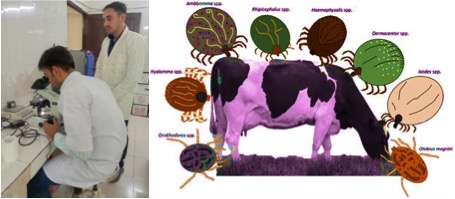Livestock farmers are a worried lot as their animals are suffering from tick-borne diseases — theileriosis, babesiosis and anaplasmosis — which are dangerous for dairy animals, particularly for crossbreed animals.
A report of the District Disease Diagnostic Laboratory (DDDL) of the Animal Husbandry Department here shows a grim picture that around 70 per cent animals were found positive for these diseases in the past one year.
As many as 1,046 samples of dairy animals comprising Karnal and nearby districts were tested here in the lab between April 2021 and May 2022. Of these, 701 were found positive for these diseases. Among the positive samples, 70.96 per cent are of cattle and 29.04 per cent buffalo, said Dr Vikas Choudhary, in-charge, DDDL.
Of the positive, 493 were positive for anaplasma, while 49 for babesiosis, 158 for theileriosis, and one for trypanosomiosis. These are different kind of diseases which need different treatment, he added.
He says cases of tick-borne diseases are coming to them throughout the year. He emphasised on the early diagnose and treatment. “ Tick-borne diseases of livestock constitute several diseases which should be diagnosed early and their treatment should be done at the right time,” he added.
He said during summer, especially during the monsoon, ticks problem multiplied manifold, making a large number of animals susceptible to these diseases. Tick-borne diseases cause grave economic damage as these reduce milk yield by causing irritation to animals and reducing blood and immunity, said Dr Choudhary. Deputy Director Dr Dharmendar Kumar said farmers should also take measures to control ticks on their premises by breaking their life cycle. Dr Tarsem Rana, veterinary surgeon, appealedto the farmers to get their animals tested for these diseases if they had any ailment. Dr Choudhary said crossbreed cattle were more prone to tick-borne diseases. “Our indigenous cattle are resistant to tick-borne diseases as well as other diseases such as mastitis etc, so the crossbreed farmers have to take care extra of their animals,” he added.
The Tribune : 28th June 2022

